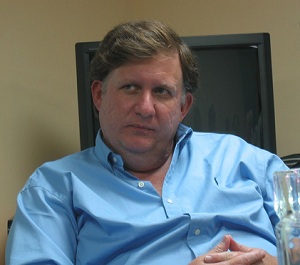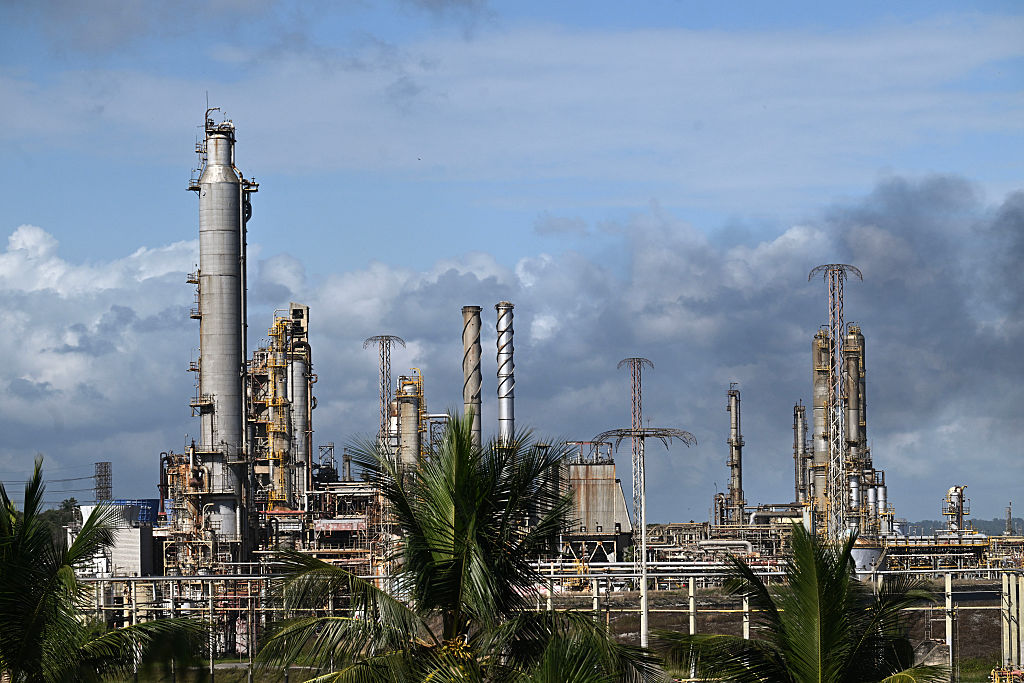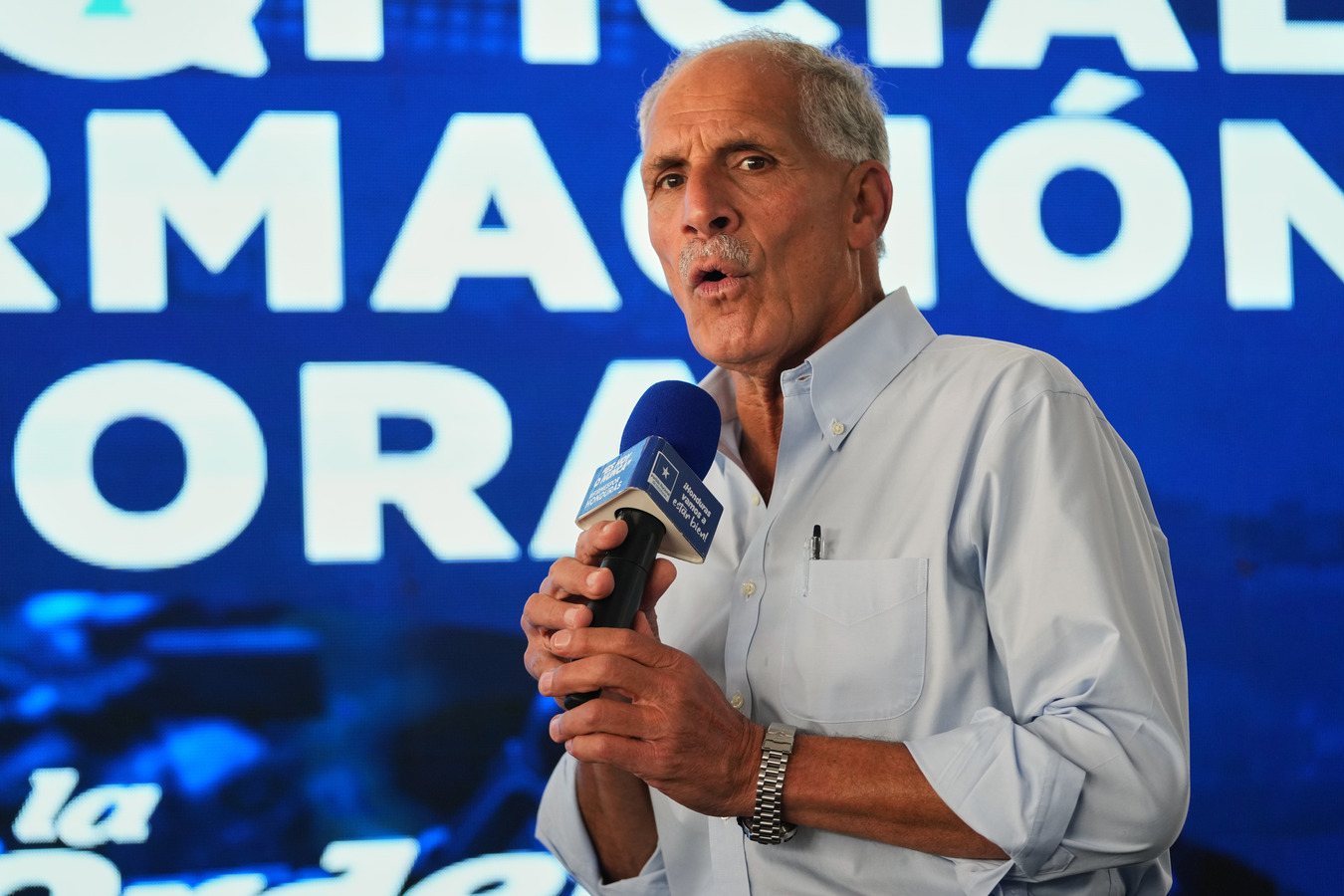Interview: President of Consultores 21 Polling Firm on Venezuela’s Election
Interview: President of Consultores 21 Polling Firm on Venezuela’s Election
AS/COA spoke to Luis Christiansen, president of prominent Venezuelan polling firm Consultores 21, about potential voting trends in the country’s October 7 election.
“The work we are doing is particularly useful to be able to identify which elements are bringing Venezuelans together, especially after more than a decade in which there has been an emphasis on what separates us.”
 As president of pollster Consultores 21, Luis Christiansen analyzes voter trends in Venezuela. He spoke to AS/COA’s Andreina Seijas about the upcoming presidential election in which President Hugo Chávez seeks a fourth term, facing opposition candidate Henrique Capriles. A September 14 survey by his firm shows Capriles polling ahead of Chávez by two points. Christiansen shared his observations on voter tendencies prior to the election day, as well as his thoughts on both candidates’ campaign strategies.
As president of pollster Consultores 21, Luis Christiansen analyzes voter trends in Venezuela. He spoke to AS/COA’s Andreina Seijas about the upcoming presidential election in which President Hugo Chávez seeks a fourth term, facing opposition candidate Henrique Capriles. A September 14 survey by his firm shows Capriles polling ahead of Chávez by two points. Christiansen shared his observations on voter tendencies prior to the election day, as well as his thoughts on both candidates’ campaign strategies.
AS/COA: Unemployment and the misiones (government social programs) are considered the fundamental factors that determine Venezuelan’s voter intention. To what extent do these factors generate support for one candidate or the other?
Luis Christiansen: One of Chávez’s main strategies consists in highlighting the strength of his misiones and social programs. However, the campaign has shown so far that these programs have become a smaller obstacle to support for Capriles.
Employment is key for two reasons. The first is because it is the most commonly cited topic when one asks Venezuelans what they would do if they were president. The second is that the current government is not interested in promoting sustainable employment, because a person who is employed does not depend in the government, and the aim of social programs is to generate that dependency.
AS/COA: A few weeks ago Chávez warned of a possible civil war in Venezuela—of a “historical lesson” for October 7. To what extent is fear a determining factor in the Venezuelan vote?
Christiansen: I would separate the two concepts, those of stability and fear. The element of stability and tranquility is very important, because Venezuelans need order in their lives. By saying that if Capriles wins there is a possibility of a civil war or social unrest in Venezuela, the president is saying “I will help promote unrest in the country,” rather than guaranteeing order. When you think about the concept of fear, you think of the secret ballot. Until the election in 2010, there hasn’t been any evidence of fear at the voting booth. This year’s election, however, should take this factor into account because the government has increased the number of people who receive government benefits and has modified the electoral system. This could be the first time that fear is present in the electoral process.
AS/COA: Other polling firms associate ups and downs in the polls to Chávez’s illness and the August explosion at the Amuay oil refinery. To what extent do events such as these have an impact on the polls?
Christiansen: We have registered only one significant change in the polls prior to the events in Amuay or the opposition’s corruption charges. These events still have not been reflected in public opinion. The change we saw took place in the last half of 2011. Some people associate it with Chávez’s illness, but we associate it to the misiones that began last year and helped Chávez close a gap in public opinion. We haven’t seen any other noticeable changes in 2012, which indicates the election is very balanced between the two candidates.
AS/COA: This is the first time an opposition candidate is ahead of Hugo Chávez in electoral polls. In regards to the campaign, one could say that Chávez’s political machinery has always been the same. In this sense, what is your opinion about the changes in Henrique Capriles’s campaign that could be causing this tendency in the polls?
Christiansen: I think one of the differentiating factors between the candidates is that since Capriles was the candidate in Miranda and was elected governor in 2008, his campaign did not directly confront his adversary but rather tried to consider voters’ needs. Capriles recently used a phrase that I think summarizes his campaign style: “Today, problems are what unite Venezuelans, but after October 7 the search for solutions is what will bring us together.” This summarizes his campaign spirit, because the goal is not to accentuate the differences that might exist, but to try to highlight common elements that can unite him with the electorate. This is totally different from Chávez’s campaign style, which constantly highlights differences and generates conflicts. Capriles’ victory in 2008 and the fact that this is a balanced election demonstrate that his campaigning style is adequate.
AS/COA: Is there an age or social group that is key for this election? Why?
Christiansen: Youth are important because, in recent years, young people have demonstrated that they are capable of turning out in large numbers in terms of participation. Women have also demonstrated that they can make a difference in the election, particularly because Venezuelan women have a strong influence in their family circles. From the perspective of social class, until now numbers suggest that the D class is the battlefield where the election will be decided. In the three latest elections, Chávez has been able to build a majority in the D and E classes. This time he hasn’t been able to build a majority there, and that is the reason why the election is close. There’s an impression that it will be a lot of work for Chávez to achieve that majority.
AS/COA: To which social class or group do the majority of undecided voters belong to?
Christiansen: There’s a problem with undecided voters because they don’t exist. I am saying they don’t exist because undecided voters are an analytical construction. If you force voters to choose between Hugo Chávez and the opposition, there is a group of them that will stay on the sidelines. The volume of those voters depends on the type of scale that you use, and therefore they don’t seem like a relevant factor in the election. Ninety-eight percent of Venezuelans are either for or against Chávez, so in his case there is always a decision. So I think undecided voters are useful as a concept for analysis, but in practice they are not as useful.
AS/COA: Some say a broader political consciousness among Venezuelans is part of a positive legacy from the last decade. Of 18 million voters, what level of abstention is expected on October 7?
Christiansen: We are expecting that between 63 and 75 percent of the electorate will vote; in other words, an abstention rate of between 25 and 27 percent that could even decrease as we get closer to October 7. This looks like an election with very high participation rates, perhaps equal to or higher than the elections in 2006.
AS/COA: Tell us about your experience as the head of a polling firm in Venezuela. What are the main challenges and opportunities?
Christiansen: My experience at Consultores 21 has been very rewarding. It is a great responsibility to be able to properly understand what the country is saying, or what it is thinking. The work we are doing is particularly useful to be able to identify which elements are bringing Venezuelans together, especially after more than a decade in which there has been an emphasis on what separates us. Identifying what unites us is linked to our aspirations. That is why I believe it is important to make an effort to work together to solve the issues that require teamwork and affect us all.








